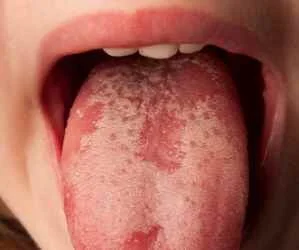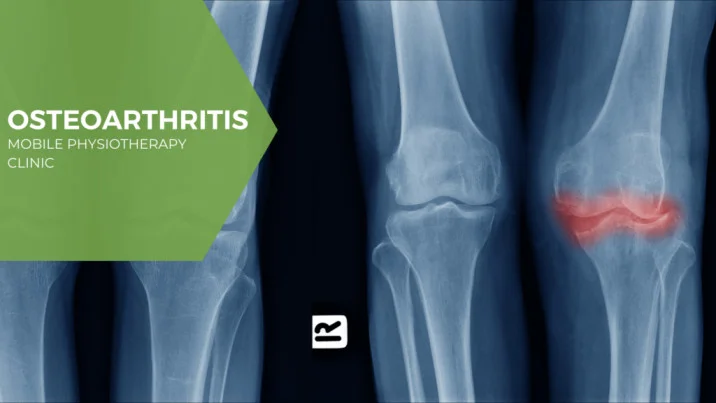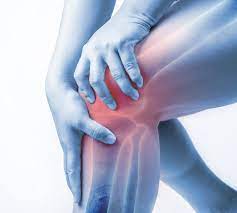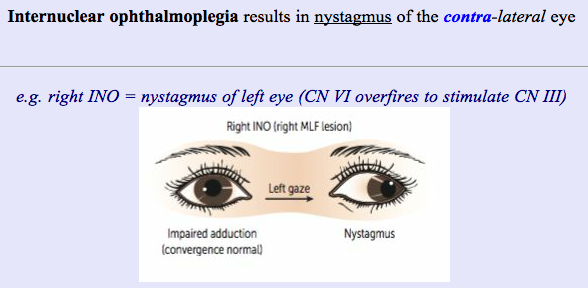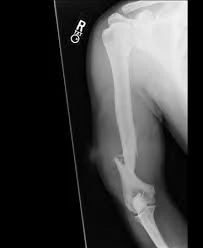Sore Back of Tongue: Causes, Symptoms, and Relief Strategies
Table of Contents
What is the Sore Back Of the Tongue?
The back of the tongue, often referred to as the base of the tongue, is a crucial component of the oral cavity responsible for various functions including taste perception, swallowing, and articulation of speech sounds.
It is a complex anatomical region comprised of muscles, glands, and sensory receptors. When experiencing soreness in this area, it can significantly impact daily activities such as eating, speaking, and even breathing.
Several factors can contribute to a sore back of the tongue, including infections, injuries, allergies, or underlying medical conditions.
Causes of Sore Back of Tongue
Tongue pain or discomfort is frequently caused by inflammation, a condition characterized by a swollen tongue and color changes. Inflammation can be brought on by viral, yeast, or bacterial infections.
Other contributing variables include a variety of irritants, alcohol, tobacco, and exposure to particularly hot or spicy meals or beverages. Several other inflammatory and abnormal processes can affect the tongue.
While sore tongues normally go away on their own, sometimes they indicate a more serious issue, such as a prolonged sickness, an infection, or a vitamin deficit.
Trauma
Surgery, wounds, biting, teeth grinding, and ingestion of hot or sharp items can all cause injuries to the tongue.
Minor injuries can heal on their own with time if left untreated, while serious injuries might need to be treated by a doctor.
Topical medicines may be used to manage discomfort, especially before and after meals.
Transient Iingual Papillitis
Larger tissue can occasionally develop on the tongue. Other names for these red or white pimples include lying bumps or transient tongue papillitis.
The taste buds are offended by these lumps. Although the precise reason is uncertain, hormone fluctuations and stress may be factors.
Even though they might be difficult, they usually disappear on their own without the need for medical attention in a few days.
Oral Thrush
A type of fungal or yeast infection of the mouth or throat is oral thrush, sometimes referred to as candidiasis. It can cause irritation, redness, taste loss, cottage cheese-like white patches, and a cotton-like feeling on the tongue.
There are more instances of oral thrush in:
- Infants under one-month-old
- Older adults
- Individuals who wear dentures
- Those whose immune systems are weakened
- Those who have recently taken antibiotics
- Those who use steroid inhalers to treat their asthma
- A doctor may prescribe antifungal medications.
Other Infections
Other medical conditions like the following may also cause your tongue to hurt:
- Infection of the hand, foot, and mouth
- HPV, or human papillomavirus
- Syphilis
- Reddish fever
The available therapies will depend on the cause. Syphilis and other bacterial infections require the use of antibiotics.
Mouth Ulcers
An ulcer is a localized ache that starts as a tingling and is commonly referred to as an aphthous ulcer or canker sore.
Although they are white, they can occasionally be red, yellow, or grey.
There are a few possible causes of canker sores:
- A little injury, like tongue-biting
- Consuming something tough or abrasive
- Attention or tension
- Certain long-term ailments, including celiac disease
The majority of ulcers heal in a week or two, but others may take months or more.
Often, the gels and other over-the-counter analgesics might help to lessen discomfort.
Food Sensitivity Or Allergy
If you have tongue pain after eating certain foods, it may be the result of pollen-food syndrome, which is another term for oral allergy syndrome. Most often, allergies or sensitivities to chemicals in certain fresh fruits, vegetables, and tree nuts are to blame.
Apart from a sore tongue, you could experience
- a mouth itch
- a sore throat
- swelling in your tongue, lips, or mouth
If your reaction is severe, your doctor may suggest carrying an auto-injector of insulin.
Smoking
Smokers are more prone to have tongue soreness. A dependable source for problems including abrasions, gum disease, tooth damage, and cancers of the mouth and throat.
On the other hand, smokers seem to be less likely to get aphthous ulcers. There are more hazards connected to smoking than benefits.
Nutrient Deficiencies And Anemia
Insufficient levels of the subsequent nutrients may result in tongue pain:
- vitamin B-12
- iron
- B6 vitamin
- zinc
The treatment plan comprises
Some less common causes of tongue pain include:
Burning Mouth Syndrome
Human mouth syndrome, also known as burning tongue, can cause a burning sensation on your tongue or other areas of your mouth, such as the insides of your cheeks, gums, lips, or palate. Your tongue could feel as though it had been roasted by hot food.
The sensation may come on quickly or gradually. Other symptoms include changed or lost taste, dry tongue, and increased thirst.
Damage to the nerves or an underlying illness, such as hormonal variations, pharmaceutical usage, and others, are examples of potential reasons. The treatment plan will be determined by the cause.
Neuralgia
Neuralgia is a condition characterized by irritation or injury to the nerves, which can lead to burning tongue syndrome and tongue discomfort.
Particularly after swallowing, you could feel excruciating pain on your tongue, tonsils, throat, or ears, similar to an electric shock.
It can be important to take medication for your nerve pain.
Lichen Planus
Among other symptoms, oral Planted lichens are a persistent, inflammatory skin condition that can cause tongue discomfort. We refer to this as oral lichen planus.
Immune system malfunction is believed to be the cause of lichen planus. Dental plaque and stress might increase symptoms.
Based on the kind, there might be:
- A lacy white pattern
- Lines
- Redness
- Ulceration
- Changes in tongue color, in some cases
About two-thirds of those who have this illness have symptoms, according to a dependable source. Individuals may notice sensitivity to spicy or acidic meals.
Medication to control the symptoms and lifestyle changes are available as treatment.
Behcet’s Disease
Behcet’s illness all across your body results in blood vessel inflammation. The majority of patients with this illness report having mouth sores that resemble canker sores. Among the other symptoms include vaginal sores.
A patient will require continuous care to address a variety of symptoms. Although the exact cause of this condition is unknown, genetic factors seem to be involved.
Glossitis
An inflammation of the tongue is called glossitis. It may hurt, irritate, or give you a burning feeling.
Multiple types of irritation exist.
Based on the kind, you could observe:
- redness
- a smooth, shiny appearance
- fissures or cracks in the tongue
- plaque-like lesions
Anaemia, poor vitamin B levels, using certain drugs, and various viral disorders are possible reasons.
Certain Medications
Sometimes the usage of different drugs might cause tongue sores.
Among these are a few:
- beta-blockers
- immunosuppressants
- mouthwashes
- corticosteroids
If you suspect that any of your prescriptions are the source of your painful tongue, consult a physician.
Pemphigus Vulgaris
An uncommon condition called the condition vulgaris can result in painful blisters in your mouth and other body parts. Although the precise etiology is uncertain, an underlying immunological issue could be involved.
Bleeding, leaking, and infection are all possible with ulcers.
Different drugs or treatments comparable to those used for severe burns are typically employed in treatment.
Oral Cancer
Sometimes a painful tongue is the result of oral cancer.
It’s a good idea to visit your doctor if you discover a lump, sore, or other lesion that lasts three weeks or more, even if there is no discomfort, as oral cancer may not produce pain in its early stages.
Sjogren’s Syndrome
An inflammatory condition called Sjogren’s syndrome causes inflammation in the lacrimal and salivary glands. The symptoms include joint discomfort and other problems, as well as persistently dry eyes and mouth. The tongue may seem dry and smooth.
Why certain people get Sjogren’s syndrome is unknown. Both genetic habits and viral exposure could be influenced.
Chewing gum, drinking water, or utilizing saliva replacements can all help ease the symptoms of dry mouth caused by Sjogren’s disease.
Diagnosis
During a medical or dental examination, information is acquired based on clinical appearance and symptoms. Imaging may be required in addition to help with the diagnosis. Computed tomography (CT), positron emission tomography, and magnetic resonance imaging (MRI) are examples of several imaging modalities.
A diagnosis is determined using the available data. However, if no single symptom or indication can be used to define the tongue problem, a differential diagnosis is considered. A differential diagnosis includes a list of all plausible explanations for the signs.
Comparing the possibility of sickness to other illnesses that might be the source of the tongue problem is a thorough process. For example, a white tongue lesion may be identified as denture contact irritation, lichen planus, or leukoplakia.
Based on the diagnosis, each of these factors may be carefully taken into account. After that, a treatment plan can be made.
A particular color called toluidine blue has shown promise in treating a variety of tongue issues that may initially be cancerous. Toluidine blue staining is a helpful technique for the early diagnosis of malignant or cancerous tumors.
For a more conclusive diagnosis, a biopsy is necessary. A biopsy is a procedure that entails using a microscope to examine a sample of tissue or cells. The optimum care can only be obtained when a diagnosis has been established.
Treatment
Medical Treatments
Antibiotics
The disease and other bacterial infections can cause mouth sores. Make sure you take the antibiotics until the end, even if you feel better.
Antifungals
Antifungals such as clotrimazole and fluconazole are used to treat oral fungal infections.
Prescription Mouthwash
A doctor could suggest a corticosteroid to reduce inflammation caused by mouth sores or another inflammatory condition like lichen planus.
Steroids
An antibiotic or prescription mouthwash might help prevent infection while a sore tongue recovers.
Vitamin Supplements
You may need a prescription vitamin supplement, such as an injection of B-12, folic acid, or iron to help treat a deficiency.
Medications To Increase Saliva Production
If you experience dry mouth, some recipes might help stimulate salivation.
Cancer Treatments
Treatment options for oral cancer may include radiation, chemotherapy, or surgery.
Topical Gel
Topical gels work by numbing the mouth’s discomfort.
Prescriptions for stronger topical gels may be required, but this medication is available without one.
Pain Medication
Swelling may be reduced by aspirin and other nonsteroidal anti-inflammatory drugs.
A doctor may prescribe stronger corticosteroids for severe canker sores to treat the swelling and pain.
Home Remedies
Many conditions can cause arthritis, making prevention difficult. Still, living a healthy lifestyle lowers your risk of stroke, which in turn lowers your probability of developing a disorder. As an example:
You may get rid of the sore tongue and avoid infection by using mouthwash, floss, and a soft toothbrush.
You can use aloe juice as mouthwash many times a day. The tongue is covered by this as well. Aloe vera juice can be used numerous times a day as mouthwash.
Rinsing your mouth with a warm water and baking soda combination will help reduce discomfort and swelling.
On a painful tongue, dabbing tiny quantities of milk of magnesia, an acid neutralizer, can help reduce discomfort and accelerate healing.
Another method for reducing pain, inflammation, and infection is to gargle with salt water.
Several times a day, you can apply some honey straight to the painful spot or drink hot tea infused with honey.
Because ice has numbing qualities, you can ease pain in your tongue, including burning or dry mouth, by sucking on an ice cube or popsicle or drinking ice water.
Antacids are used to counteract stomach acid and can provide relief from burning or painful tongue, particularly in cases when acid reflux is the reason.
Prevention
It is not always possible to avoid situations that lead to tongue issues. Still, by maintaining proper dental hygiene, you can lower your risk of infection and irritation. Every day, floss once and brush twice. Scrape the microorganisms off your tongue. Get your teeth cleaned regularly.
Avoid smoking and tobacco products since they increase the risk of oral cancer and irritate ulcers.
Summary
A painful or burning tongue can be caused by several things, such as a hot beverage or an underlying medical condition like Sjogren’s syndrome.
Even while over-the-counter drugs can often relieve the pain associated with a sore tongue, certain underlying issues may need to be addressed by a doctor.
It is advised that you see a doctor if you find a lesion or lump on your tongue that does not go away after three weeks, even if it is not painful, or if you experience odd symptoms that you cannot explain.
FAQ
Many conditions can cause discomfort in the tongue, such as cold sores, oral thrush, and bites or injuries. A sore or painful tongue is usually not cause for concern, despite being bothersome. Most cases of hurting the tongue are straightforward problems that go away on their own or don’t need medical intervention.
Most lesions heal on their own without therapy in 4–14 days, according to researchers. While tongue ulcers usually cure on their own, several natural therapies can help reduce discomfort while the ulcer heals. Rinsing the mouth with clean water can help those with tongue ulcers at home, especially after eating.
The degree of an injury or tongue bite determines how long it takes to recover. More serious tongue injuries require medical care from a dentist and may need stitches and medication. Less serious injuries usually heal on their own in a week. It might take a few weeks or even months for them to recover completely.
There are several reasons why a sore on the side of the tongue could appear, such as cold sores, canker sores, or small injuries. Less frequently, a tongue sore might indicate malignancy. Severe, chronic, or recurrent mouth sores may occasionally be an indication of an underlying illness.
An insufficient amount of riboflavin can cause burning and stinging of the eyes, light sensitivity in the eyes, painful tongues, peeling and irritating skin on the scrotum and nose, and oral ulcers. Your doctor could prescribe riboflavin to you to address this issue. You could require more riboflavin if you have certain conditions.
Research indicates that a shortage of vitamin D may cause burning mouth syndrome, a painful disease characterized by a scorching, boiling, or mouth feeling, especially on the tongue: tingling.
In addition to burning and itching in the mouth, many vitamin B12-deficient individuals get mouth ulcers. Glossitis, a disorder that causes the tongue to change color and form and to seem red and swollen, affects many people.
Ice: Sucking on ice cubes can help reduce tongue discomfort, edema, and inflammation. A natural home cure for mouth sores is chamomile tea. Sage: The sage plant, which has to be reserved and cooled before use, can also be used as a home cure for mouth sores or inflammation.
According to research, which included Dr. Sim, the efficacy of wound healing was shown to rise with a 7% concentration of table salt (sodium chloride). This finding may indicate the function that salt plays in the healing of mouth ulcers. Even if you’re eager to try salt, Dr. Sia doesn’t suggest rubbing it in.
The persistent illness that causes annoyance and agony is herpes simplex virus. Lesions caused by herpes usually heal in a week to ten days. The lips, tongue, roof of the mouth, or gums are where they most frequently appear. First appearing as fluid-filled blisters, the sores rupture (break) within a day or two.
Ulcers on the mouth or tongue may also indicate a vitamin B12 deficiency. Anemia can occur from B12 deficiency because it causes unusually large red blood cells that don’t function properly. Therefore, a wide range of symptoms, including mouth ulcers, may result from the shortage.
Iron and zinc deficiency as well as vitamin B deficiencies may be responsible for the burning feeling on the tongue. Make sure your diet is well-balanced, with whole grains, dairy, nuts, seeds, fresh produce, and lean meats and veggies. Consult your physician before using any dietary supplements.
Creamy white patches may indicate a fungal condition called thrush. It frequently occurs when the normal balance of germs in your mouth is upset by a disease or medicine. If you have lacy-looking white spots, you may have lichen planus, which is an immune system attack on the tissues in your mouth.
There are several reasons why a sore on the side of the tongue could appear, such as cold sores, canker sores, or minor injuries. Less frequently, a tongue sore could indicate malignancy. Severe, persistent, or recurrent mouth sores may occasionally be an indication of an underlying illness.
There can be reasons why a sore on the side of the tongue could appear, such as cold sores, canker sores, or minor injuries. Less frequently, a tongue sore could indicate malignancy. Severe, persistent, or recurrent mouth sores may occasionally be an indication of a deeper condition.

